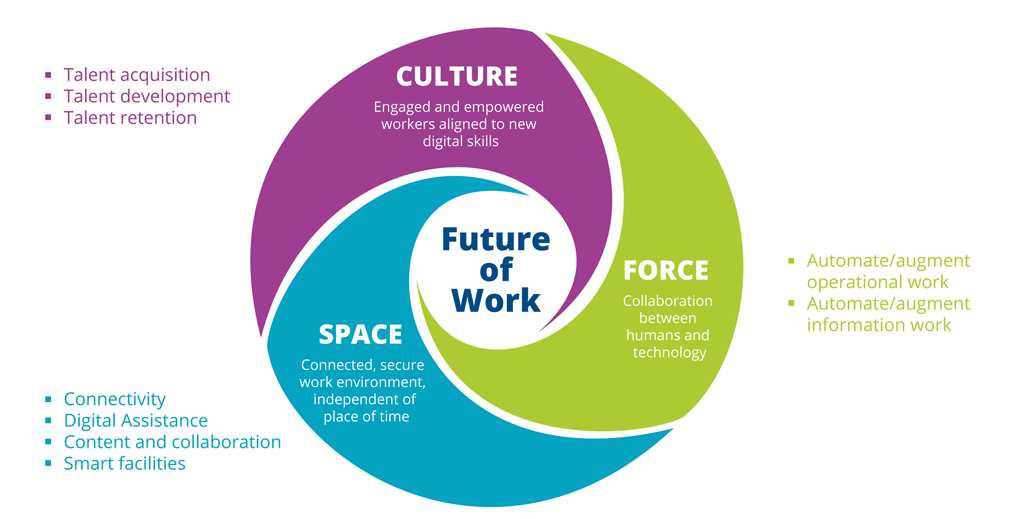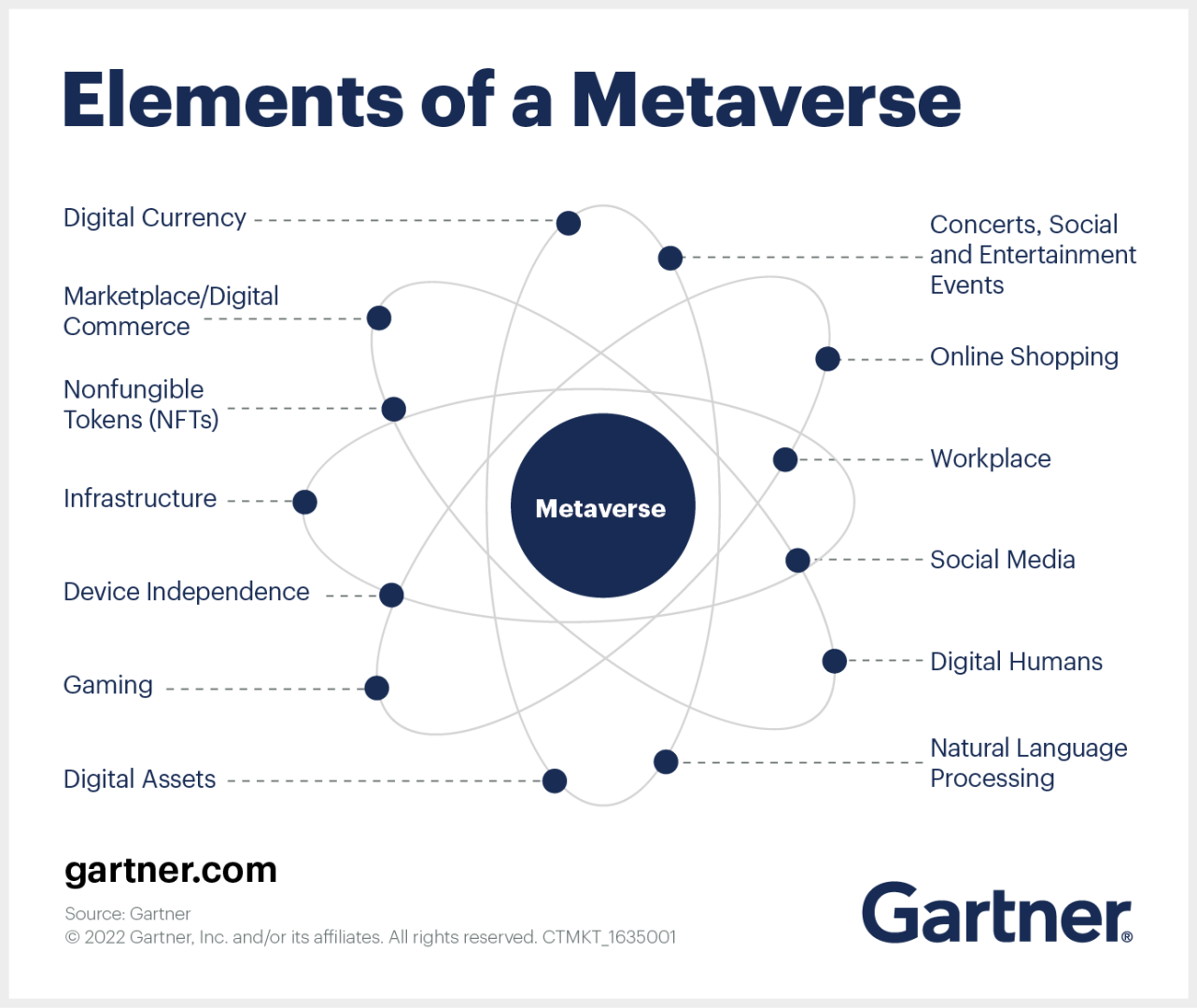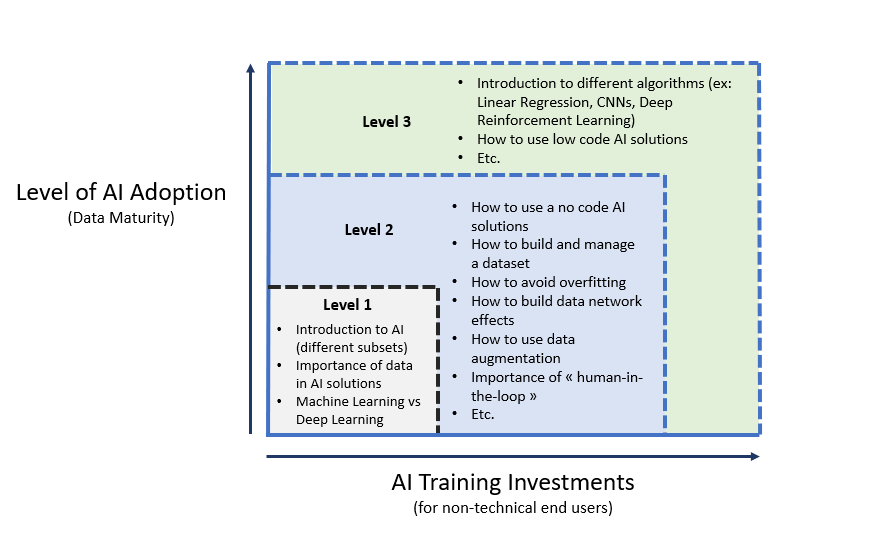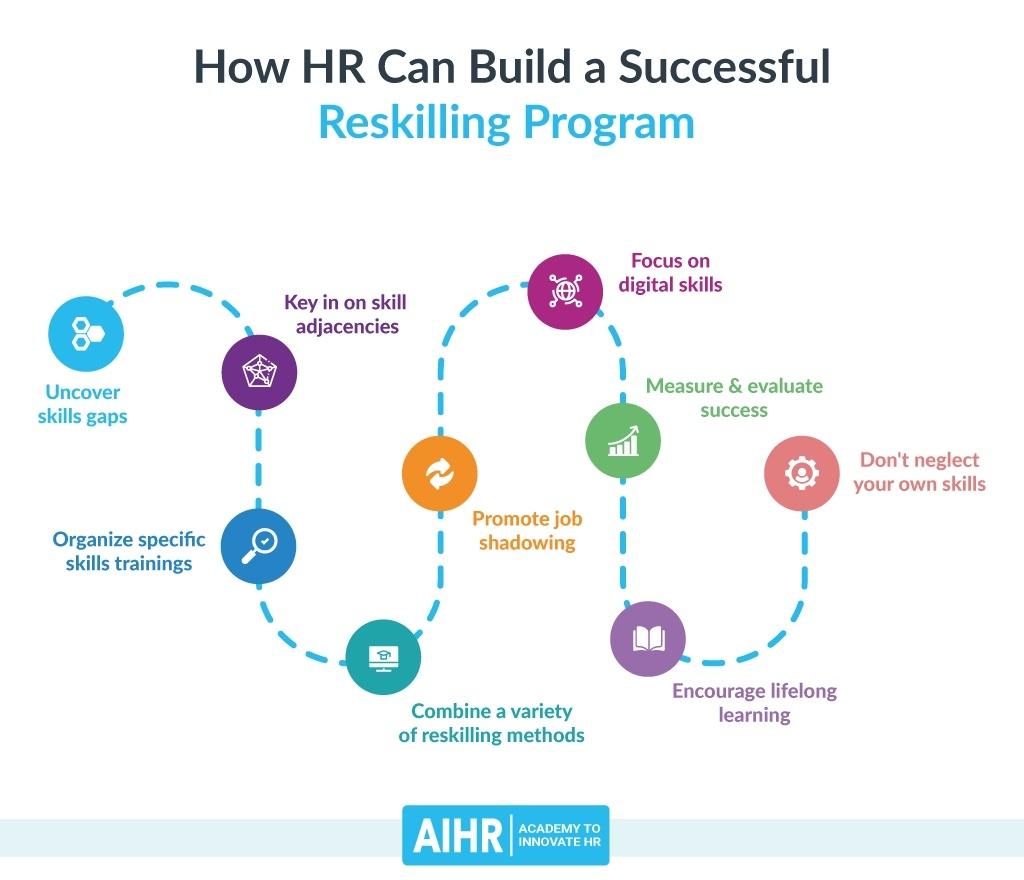
4 Trends That Are Shaping the Future of Work
From the metaverse to artificial intelligence, new trends are shaping the future of work.
During the past 3 years, remote teams and virtual meetings have taken center stage as organizations are finding new ways to work post pandemic with the emergence of new technologies.
Business leaders need to be more intentional in establishing and developing better relationships with their colleagues in a hybrid world.

Source: IDC
Labor market competition and high inflation are putting pressure on increasing salaries. Due to the on-going cost of living crisis, organizations can’t afford to increase pay as quickly as employees want or expect. Hence more organizations are now focusing on improving their culture and reskilling talent.
Here are 4 trends regarding the future of work that are already here.
1. The Metaverse is Redefining Hybrid-Work

The metaverse is still in its infancy. The promising technology is set to be the next evolution of the internet, it will transform how businesses operate and interact with customers in the modern hybrid workplace.
Matrix beat Mark Zuckerberg to Metaverse.
The Matrix is everywhere. It is all around us. Even now in this very room.
Morpheus (The Matrix)
The immersive experience of the metaverse has made it possible for massive shifts in training, education, and work.
McKinsey’s Richard Ward shares a great example: A worker can learn new vocational skills—such as repairing a truck or helicopter—with virtual-reality goggles that simulate each task.
I predict that more and more companies will use metaverse to reduce cost and increase efficiency.
2. AI-Augmented Workforce is Improving Productivity

Combining human and artificial intelligence, dubbed “AI augmentation”, is what brings the most value to the future of work bringing more efficiency.
Instead of dehumanising the workforce, using artificial intelligence the right way enables workers to better collaborate and make decisions, thus reducing human error.
Never send a human to do a machine's job.
Agent Smith (The Matrix)
In the USA, young lawyers' biggest competition isn't other young lawyers. It is IBM's Watson.
Watson is AI for smarter business.
IBM
According to a report, you can get 90% accurate legal advice (on basic stuff) within seconds, with 90% accuracy compared with 70% accuracy when done by humans.
A Deloitte Insight report released in 2016 said that “profound reforms” will occur in the legal sector over the next decade, estimating that nearly 40 percent of jobs in the legal sector could end up being automated in the long term.
AI-augmented workforce is already a reality and will play an increasingly disruptive role in our future.
3. Reskilling Talent is Essential To Thrive

What we are looking at is a major shift in terms of the set of skills within each job and the types of jobs that will exist in the future.
Saadia Zahidi, managing director of the World Economic Forum (WEF)
According to a study by McKinsey, increasing automation will significantly shift the skill profiles of tomorrow’s jobs that has implications for employers and employees alike.
Companies need workers with the right skills to develop, manage, and maintain their automated equipment and digital processes and to do the jobs that machines cannot. Reskilling can help left-behind workers find new careers.
Hiring freelancers for specialized tasks can also help companies reduce the cost and time of training their existing workforce. This kind of contingent workforce can bring niche skills and expertise to a company, improving its overall productivity. For instance, a company may need a social media specialist for a short-term project. Instead of investing in training an existing employee, they can hire a freelancer with the required skills and complete the project successfully.
It's essential for workers to need to learn new skills to access the employment market in a very competitive environment.
4. Fairness and Equity Are Reinventing Company Culture
Business leaders need to address how they are managing fairness and equity across the increasingly varied employee experience.
According to the US Bureau of Labor Statistics, more than 4.3 million people voluntarily quit their jobs in December 2021.
Companies have to build a human-centered organizational culture where work is built around their employees’ lives and not the other way around.
Some characteristics of this reinvention are flexibility, trust, belonging, and a holistic focus on well-being.
We have been all about work-life balance. This is backward. It should be life-work balance.
Claude Silver, the chief heart officer at VaynerMedia.
These are some of my predictions regarding the future of work. I would love to know your predictions of the future of work in the comments section.
Trending
-
1 How Does SaaS Differ From IaaS And PaaS?
Fabrice Beaux -
2 Single Page Applications vs Multi-Page Applications
Fabrice Beaux -
3 Top 7 Effective Strategies for Multi-Language Website Development
Fabrice Beaux -
4 Boost Engagement to Infinity and Beyond: Unleashing AI-Driven Support
Anas Bouargane -
5 The Cheapest And Most Beautiful Stickers in CS2
Daniel Hall






Comments